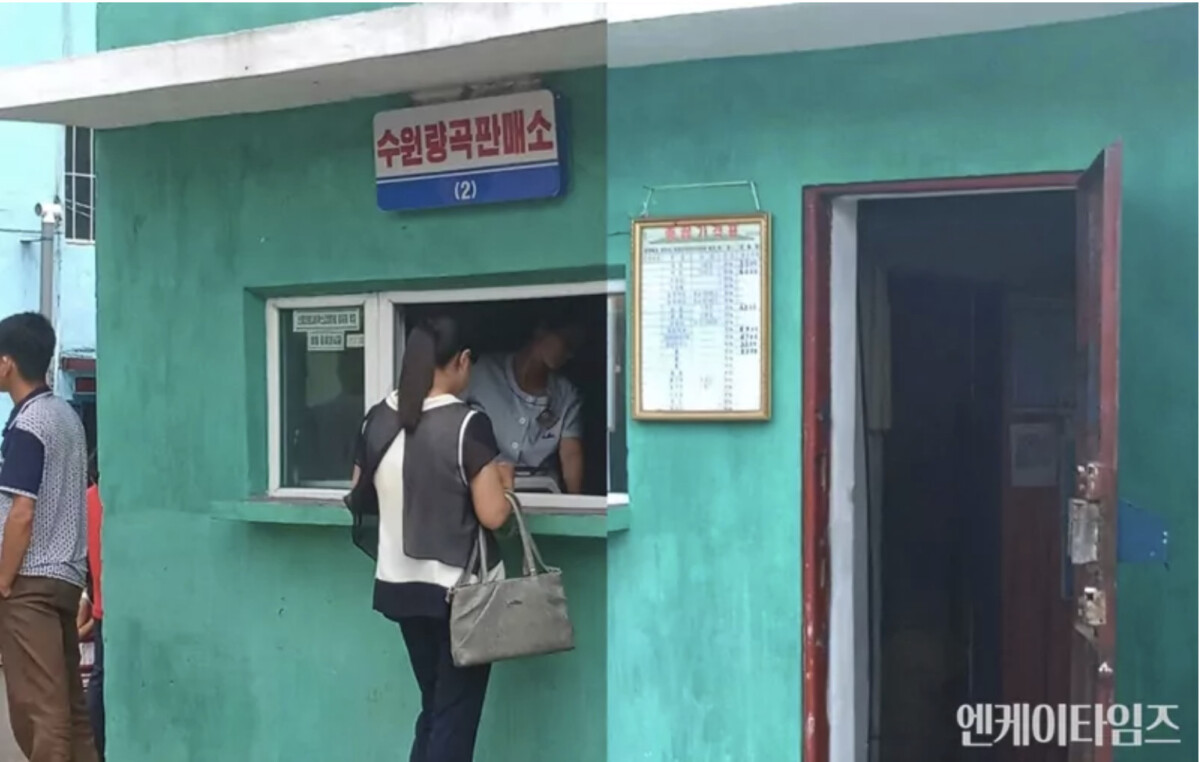North Korea sees simultaneous drop in exchange rate and food prices… Due to fall harvest and Kim’s China visit

Recent developments indicate that both exchange rates and food prices have dropped simultaneously in North Korea.
According to an investigation conducted by NK Times from September 1 to 7, the U.S. dollar exchange rate was reported as follows:
- Pyongyang – 30,050 won
- Pyongsong – 30,000 won
- Sariwon – 29,800 won
- Chongjin – 30,000 won
- Hyesan – 29,600 won
This reflects a decrease of 1,110 won from the average of 31,000 won at the end of last month.
As for the Chinese yuan, the exchange rates were:
- Pyongyang – 4,000 won
- Pyongsong – 3,980 won
- Sariwon – 3,960 won
- Chongjin – 4,100 won
- Hyesan – 4,150 won
The average was 3,520 won, representing a drop of about 1,230 won from 4,380 won just 10 days earlier (as of August 29).
Food prices have also seen a significant decline. The price of a kilogram of rice was:
- Pyongyang – 12,500 won
- Pyongsong – 12,500 won
- Sariwon – 12,300 won
- Chongjin – 12,400 won
- Hyesan – 12,600 won
This marks an average decrease of 540 won from 13,000 won just 10 days prior.
Corn per kilogram was:
- Pyongyang – 3,500 won
- Sariwon – 3,700 won
- Chongjin – 3,550 won
- Hyesan – 3,600 won
This is a drop of about 413 won compared to the average price of 4,000 won at the end of last month.
Sources attribute the trend to the arrival of freshly harvested potatoes in July and August, followed by new corn from mid-August, as well as the distribution of imported rice and flour in the markets.
Additionally, recent developments, particularly Kim Jong-un’s visit to China, are believed to be influencing the decline in both exchange rates and food prices.
“With the autumn harvest season approaching, overall food prices are falling sharply, which is helping to ease economic instability,” a source contacted in the North said.
“Furthermore, following the Marshal’s (Kim Jong-un’s) visit to China, there is growing optimism that the economy will improve, which seems to be contributing to the decline in currency exchange rates and food prices,” he said.
“Many people believe that economic aid and exchanges with China will increase following the Marshal’s visit,” he added. “This expectation appears to be reflected in the falling exchange rates and food prices, and many expect this downward trend to continue through December.”
If these findings hold true, the recent trends are likely to have a positive impact. In particular, the drop in food prices could improve basic access to food and ease the financial burden on the population.
- Pressure on all citizens to supply fertilizer creates a clandestine trade - January 9, 2026
- New system for distribution grain to farmers based on performance, Not everyone is happy - December 13, 2025
- Party to hold annual review meetings early this year… Members fear public criticism - December 4, 2025

